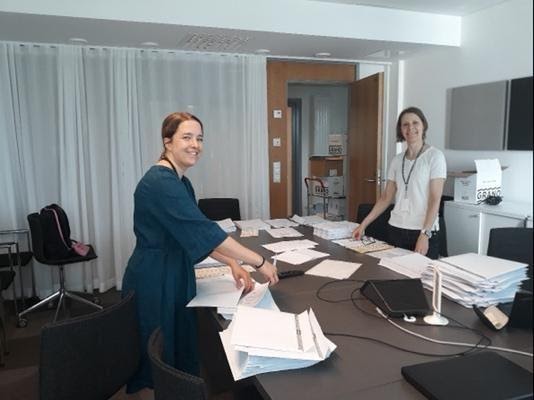
Caption
The WW-FINGERS network has launched a survey to monitor the effects of the COVID-19 pandemic effects on older adults at risk of dementia, in terms of changes in lifestyle, behaviour, and mental wellbeing.
The FINGER prevention model focuses on modifiable factors such as cognitive and social stimulation, nutrition, and control of vascular and metabolic risk factors, many of which may be affected by quarantines and lockdowns. Restrictions enforced in many countries during the COVID-19 pandemic may have short- and long-term effects on the risk factors relevant for cognitive impairment and dementia, especially lifestyle (e.g., physical activity, diet, social interactions, etc) and factors related to vascular and metabolic health (e.g., hypertension, diabetes, access to medical care and drugs etc).
The World-Wide FINGERS network provides a unique framework to explore how the pandemic has affected these factors, while accounting also for country-specific strategies to contain the spread of the infection. The WW-FINGERS SARS-CoV-2 survey was developed by a multinational team from the network. A core survey was created to allow for harmonization of data analysis, and cross-national comparison, while also providing the opportunity to adapt specific parts of the survey to account for local, cultural, and economic factors. Many studies in the World-Wide FINGERS network have been collecting data from their participants at different waves of the COVID-19 pandemic, with the first results published from Finland, view here.
“It will be interesting to compare the results with multiple countries from the World-Wide FINGERS Network. We use a common methodology (i.e., WW-FINGERS SARS-CoV-2 survey) to learn how the pandemic is affecting the older adults in different cultural and economic settings.”, says Assistant Professor Francesca Mangialasche who is the Scientific Coordinator of this initiative. “It is essential to monitor these effects so that future planning can focus on helping individuals with cognitive disorders better cope during periods of lockdown and social distancing.”
The WW-FINGERS SARS-CoV-2 Survey is linked to the WHO Global Forum on Neurology and COVID-19.

